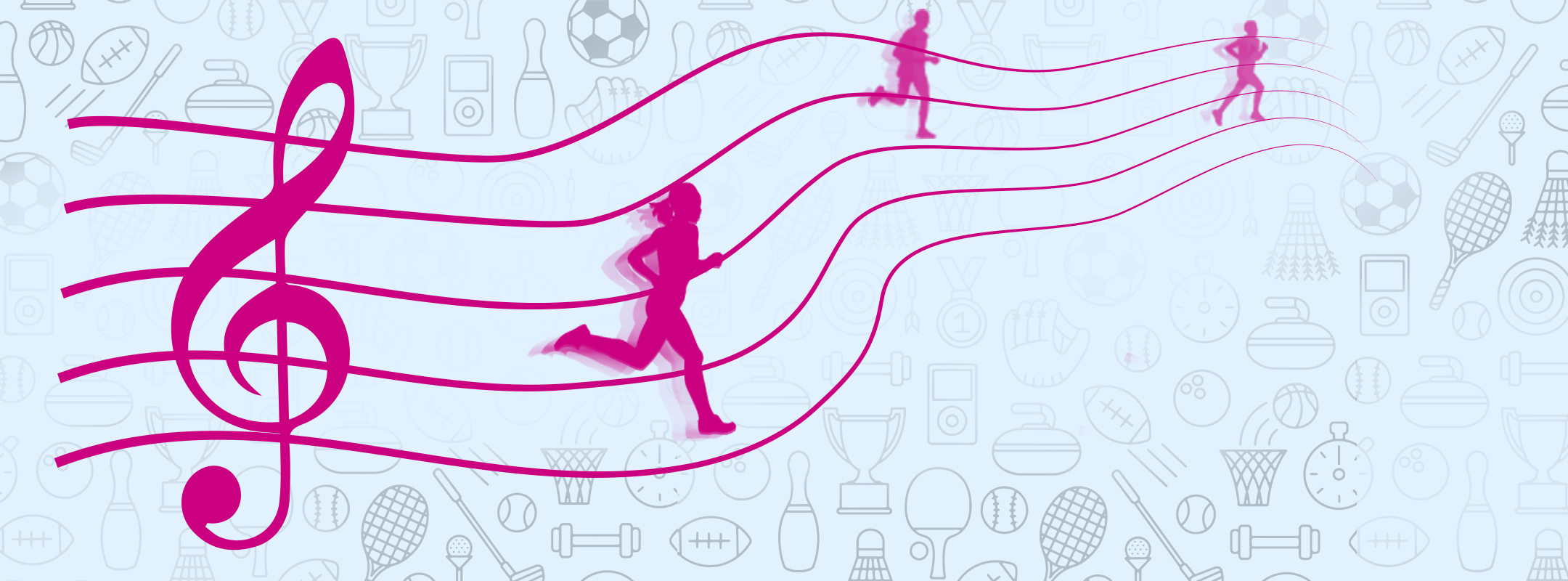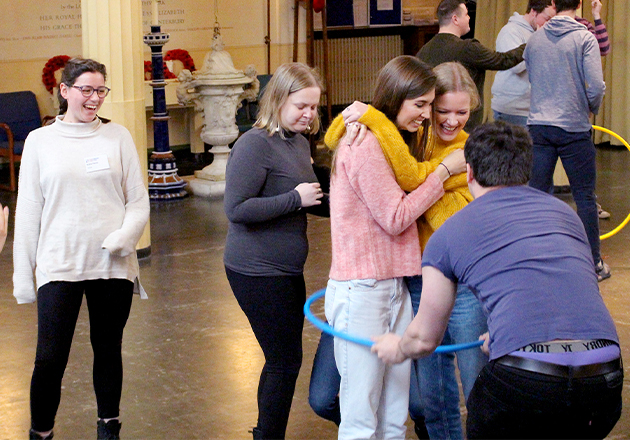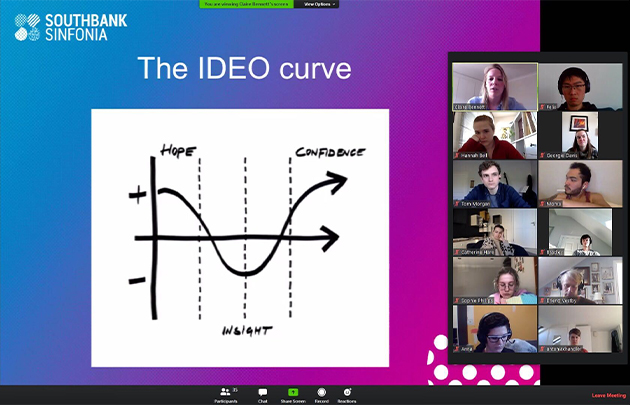
Although the concert hall and the football stadium can seem universes apart, these two arenas have more in common than meets the eye. At Southbank Sinfonia, as part of our Artist Development programme we've been exploring the similarities between these two high-pressure performance worlds and using techniques from sports psychology to build the mental resilience needed to keep our heads in the game.
Three of our musicians reflect on what this work has taught them, particularly against the chaotic and unpredictable backdrop of the coronavirus pandemic.
oboe
Over the course of the year, the orchestra has been involved in some very interesting workshops with Claire Bennett, fencing champion and performance coach. The workshops covered a variety of topics in sports psychology and applied them to situations that we often encounter as musicians.
The industry we have chosen is fiercely competitive; we are constantly pitted against each other in auditions for jobs and scholarships and easy access to recordings sets a perfect benchmark from which to compare all our performances. This contributes to the performance anxiety and burnout that many of us have experienced to some extent.
Claire’s workshops helped us to explore our motivation and unhelpful tendencies, such as perfectionism, and to reframe them in order to improve our resilience and self-esteem whilst facing the challenges of life in the music industry.
I found the sessions reassuring as they confirmed some observations I had made of myself. I have always been a firm believer that balanced and happy musicians perform better and have tried to maintain a positive but realistic mind-set. However, it is easy to fall into the trap of believing that you will fall behind if you take a day off, and harshly comparing yourself to others, especially when, as a student, you’re always surrounded by people practicing.
Yet, Claire taught us that a trait common to top performers/athletes is that they are positive and motivated by a will to improve and enjoyment rather than a need to prove themselves or fear of failure. She also talked about the negative impacts of perfectionism and the dangers of setting impossible goals, and gave us strategies to help keep these things in check.
My favourite of these was to be purposeful in practice instead of just practicing for the sake of it; planning what you hope to achieve instead of panic practicing and achieving nothing. Also, focussing on where you have come from rather than on how far you still have to go helps you to maintain a positive mind-set.
These techniques will help me to practise more effectively which will help me improve quicker, and to pick myself up after failures and learn from them.
Find out more about Laura here

trumpet
Before taking part in Claire Bennett’s workshops, I, like many others, assumed that sports psychology was designed specifically to enhance the physical movements of an athlete. As a person who only dips in and out of sport, I was quietly prepared for a lecture that would make me feel very guilty for eating that extra cookie.
I was proven very wrong. Claire’s workshops in performance psychology have not only helped me to organise my trumpet practice, but have also helped me through lockdown. While we were not able to participate in person like previous years, Claire’s advice on motivation, cultivating a ‘growth mindset’, and mental resilience has become particularly poignant over the last six months. I took for granted how much I was able to learn from those around me and, having been isolated from the rest of the orchestra, felt a bit lost on my own. I have found the technique of ‘reframing’ my thoughts particularly helpful, both for my trumpet playing, and also for seeing the positives throughout this pandemic.
Southbank Sinfonia recognises that a sustainable performance career relies not only on being able to bring your best to concerts, but also on maintaining a healthy and conscious attitude towards your work and yourself. I learned that sports psychology is a universally beneficial method of training the mind that places just as much emphasis on the journey as on the milestones along the way. Thank you, Claire!
Find out more about Katie here

viola
Having been reluctant to engage with sport at school (I was the kid who’d pretend he had a music lesson on a rainy Wednesday afternoon – I simply didn’t know the rules and couldn’t face the mud…), I rashly decided to start running when I was 25 in an effort to improve my mental health. The endorphin hit was palpable, but I was also blown away by how some of the lessons I learned from running, beyond sheer bloody-mindedness, transmitted to my discipline in music.
This piqued my interest in the psychological parallels that run between sport and music. Musicians are often framed as athletes of the small muscles, of our instruments and voices, but that specialised training of limbs, lips and larynxes isn’t necessarily followed up with the kind of mental coaching that is commonplace in the life of an elite sportsperson.
As such, our Peak Performance workshops with Claire Bennett have been eye-opening and a huge resource during such a difficult time: our first seminar was, presciently, on resilience.
I have been prompted to look carefully at my mindset as a musician, focussing on improving my goal setting, but also enabling me to take a deep breath and realise that I have been very resilient at times. I’ve also learned how to deal with negative perfectionism, not to be scared to ask myself searching questions about the stages of my career, and to be better at removing comparative value judgements and trying to be as objective as I can.
Sharing our thoughts during these sessions brought us closer together as colleagues and friends, and when we were able to return to live music-making, amongst the joy and delight at being together again, I sensed we were all more prepared for the specific challenges – making music at a distance is hard! – and the myriad other personal and professional implications that the COVID-19 pandemic continues to impose on us.
Find out more about George here
Read more about our work with Claire Bennet here
Read more about our Artist Development programme here